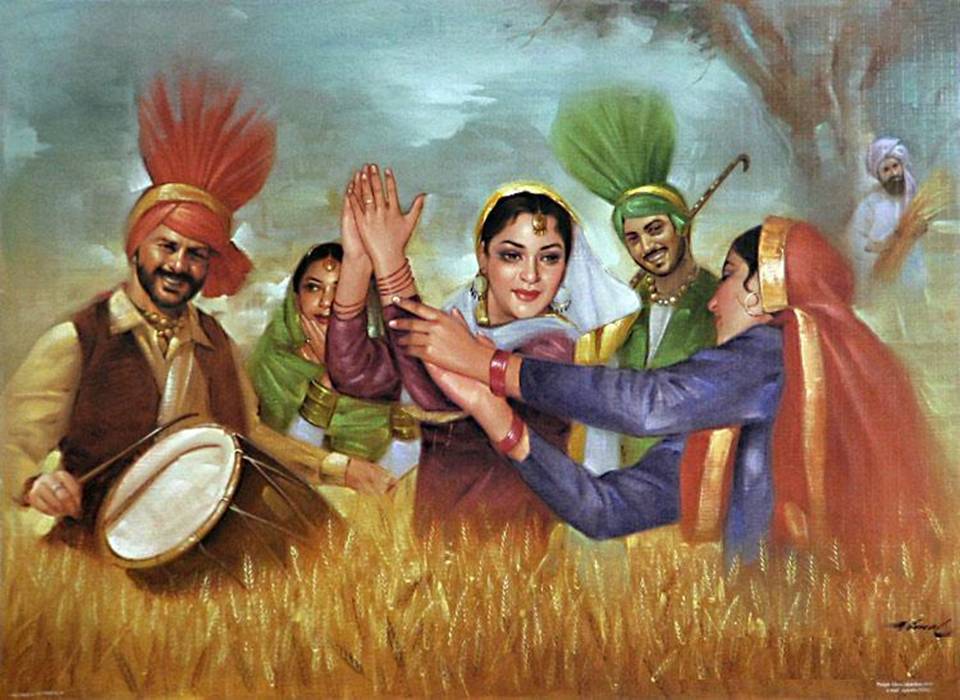Culture Of Punjab
Punjab has one of the oldest and richest cultures of the world. Its diversity and uniqueness is evident in the Punjabi poetry, philosophy, spirituality, education, artistry, music, cuisine, science, technology, military warfare, architecture, traditions, values and history.

The culture of Punjab encompasses the spoken languages , written literature, cuisine, science, technology, military warfare, architecture, traditions, sacrifices, values and history of the Punjabi people native to the northern part of the Indian subcontinent. The term 'Punjabi' can mean both a person who lives in Punjab and also a speaker of the Punjabi language. This name originates from the Persian language 'panj' , (five), and 'ab' , (water). In Rigvedic times, this area was called Sapta Sindhu or 'Seven Rivers' illustrating the extent of Undivided Punjab. Indus River (the largest river in this five river system), and the five other rivers to the south eventually join Indus or merge into it later in the downstream of the Punjab valley. All the rivers start and flow out of the Himalayas. These other five rivers are Jhelum River, Chenab River, Ravi River, Beas River and Sutlej River. Due to the large number of Punjabi people distributed throughout the world, especially Pakistan and India, many people are increasingly experiencing the culture and becoming influenced by it[citation needed]. Glimpses of traditional Punjabi culture can be seen in the Western world (e.g. the U.S., the UK, the EU, Canada, Australia, Africa and the Middle East).Naturally people influence each other wherever they settle and live. Punjabi culture is evident from Punjabi philosophy, poetry, spirituality, education, artistry, music, cuisine, and architecture. Similar migrations by or invasions into the Punjab, in the past many centuries, were by the Aryans, Dravidians, Scythians, Portuguese, Spaniards, Armenians, Greeks or Alexander the Great which reached as far as the Beas River in the Punjab[citation needed], Mongols Arabs, Persians, Afghans, Turko-Persians (Mughals) and then the Europeans (British) came to Punjab for various economic reasons of their own and its fertile agricultural lands and abundance of water resources in its five large rivers flowing down from the Himalayas through the Punjab valley[citation needed]. These immigrants influenced the people of Punjab and, in turn, were influenced by the then prevailing culture of the Punjab. Punjabi wedding traditions and ceremonies are traditionally conducted in Punjabi and are a strong reflection of Punjabi culture. While the actual religious marriage ceremony among Muslims, Hindus, Sikhs, Jains, Buddhists and Christians may be conducted in Arabic, Urdu, Punjabi, Sanskrit, Hindi or Pali by the Qazi, Pundit, Granthi or Priest, there are commonalities in ritual, song, dance, food, and dress. The Punjabi wedding has many rituals and ceremonies that have evolved since traditional times.